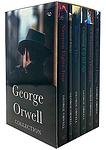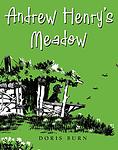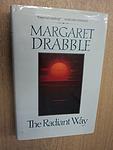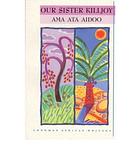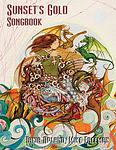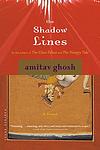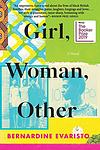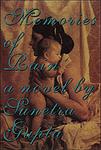The Greatest "Social & Cultural Fiction, United Kingdom" Books of All Time
Click to learn how this list is calculated.
This list represents a comprehensive and trusted collection of the greatest books. Developed through a specialized algorithm, it brings together 300 'best of' book lists to form a definitive guide to the world's most acclaimed books. For those interested in how these books are chosen, additional details can be found on the rankings page.
Genres
Social & Cultural Fiction is a literary category that encompasses novels and stories that delve into the complexities of society and culture, exploring themes such as class, race, gender, and identity within specific social contexts. These narratives often provide a lens through which readers can examine the intricacies of human relationships and the impact of cultural norms and societal structures on individuals and communities. By offering a fictional yet reflective portrayal of real-world social dynamics, this genre invites readers to gain a deeper understanding of the diverse experiences that shape our world. Authors in this category frequently use their characters and settings to comment on contemporary issues, challenge prevailing ideologies, and provoke thought about the possibility of social change, making Social & Cultural Fiction a powerful tool for empathy and a mirror for the ever-evolving human condition.
Countries
Date Range
Reading Statistics
Click the button below to see how many of these books you've read!
Download
If you're interested in downloading this list as a CSV file for use in a spreadsheet application, you can easily do so by clicking the button below. Please note that to ensure a manageable file size and faster download, the CSV will include details for only the first 500 books.
Download-
1. To the Lighthouse by Virginia Woolf
This novel is a pioneering work of modernist literature that explores the Ramsay family's experiences at their summer home on the Isle of Skye in Scotland. The narrative is divided into three sections, focusing on a day in the family's life, a description of the house during their absence, and their return after ten years. The book is known for its stream of consciousness narrative technique and its exploration of topics such as the passage of time, the nature of art, and the female experience.
-
2. Vanity Fair by William Makepeace Thackeray
This classic novel follows the lives of two contrasting women, the cunning and ruthless Becky Sharp and the sweet and naive Amelia Sedley, against the backdrop of English society during the Napoleonic Wars. The book is a satirical exploration of the obsession with wealth, status, and social climbing, and the moral bankruptcy that can result from such pursuits. The narrative weaves an intricate tale of love, betrayal, and redemption, exposing the vanity and hypocrisy of high society.
-
3. Wide Sargasso Sea by Jean Rhys
This novel is a postcolonial prequel to "Jane Eyre," exploring the life of Mr. Rochester's mad wife, Bertha. Set in Jamaica during the 1830s, it follows the story of Antoinette Cosway, a white Creole heiress, from her youth in the Caribbean to her unhappy marriage and move to England. Caught in a society that both rejects and exoticizes her, Antoinette is ultimately driven into madness by her oppressive husband and the haunting legacy of colonialism.
-
4. Gravity's Rainbow by Thomas Pynchon
Set during the end of World War II, the novel follows Tyrone Slothrop, a lieutenant in the U.S. Army, as he tries to uncover the truth behind a mysterious device, the "Schwarzgerät", that the Germans are using in their V-2 rockets. The narrative is complex and multi-layered, filled with a vast array of characters and subplots, all connected by various themes such as paranoia, technology, and the destructive nature of war. The book is known for its encyclopedic nature and its challenging, postmodernist style.
-
5. Season of Migration to the North by Al-Tayyib Salih
The novel is a post-colonial exploration of the complex relationship between the East and the West. It tells the story of a young man who returns to his village in Sudan after studying in Europe, only to find that a new villager, a man who has also spent time in the West, has brought back with him a very different perspective on the relationship between the two cultures. The story unfolds as a gripping psychological drama, filled with themes of identity, alienation, and the clash of cultures.
-
6. The Children of Men by P. D. James
Set in a dystopian future where mankind has become infertile, the novel centers on a history professor who becomes involved with a group of revolutionaries seeking to overthrow the oppressive government. As the world descends into chaos due to the impending extinction of the human race, a miraculous pregnancy offers a glimmer of hope. The professor must protect the pregnant woman and navigate the dangerous political landscape, while grappling with the implications of a world without children.
-
7. The Line of Beauty by Alan Hollinghurst
Set in the 1980s during the era of Margaret Thatcher's conservative government in Britain, this novel follows the life of a young gay man named Nick Guest. Coming from a middle-class background, he moves into the home of his wealthy friend's family and becomes infatuated with the opulence and power of the upper class. As he navigates his way through this new world, he also explores his sexuality, all while dealing with the societal and political implications of the AIDS crisis.
-
8. London Fields by Martin Amis
The novel is a darkly comic, murder mystery set in London at the end of the 20th century. The story follows three main characters: a terminally ill American writer, a petty criminal, and a beautiful but doomed woman who predicts her own murder but not the murderer. The narrative is filled with satirical social commentary, exploring themes of love, lust, greed, and deception.
-
9. The Great Railway Bazaar by Paul Theroux
"The Great Railway Bazaar" is a travelogue in which the author embarks on a four-month journey by train from London through Europe, the Middle East, the Indian subcontinent, Southeast Asia, and Siberia, and then back to Europe. The book is a vivid and insightful account of the people, cultures, landscapes, and experiences encountered during the journey, painting a unique picture of the world as seen from the perspective of a train window. The author's sharp observations and engaging storytelling make this journey as much an inner exploration as a geographical one.
-
10. Trainspotting by Irvine Welsh
This novel is a gritty, raw portrayal of a group of heroin addicts living in Edinburgh, Scotland. The narrative is non-linear and told from multiple perspectives, providing a deep dive into the minds and lives of these characters. The story explores themes of poverty, addiction, friendship, and the struggle to escape one's circumstances, all set against the backdrop of a bleak urban landscape. It is known for its strong Scottish dialect, graphic content, and dark humor.
-
11. The Lonely Londoners by Sam Selvon
"The Lonely Londoners" is a novel that explores the lives of a group of West Indian immigrants living in London during the 1950s. The narrative follows the characters as they navigate the challenges of racism, poverty, and isolation in a new and unfamiliar environment. Despite their hardships, the characters also experience moments of camaraderie and humor, providing a nuanced portrayal of the immigrant experience.
-
12. Burmese Days by George Orwell
This novel is a scathing critique of British colonial rule in Burma during the 1920s. The protagonist, a disillusioned teak merchant, struggles with the bigotry and racism of his fellow Europeans, and his forbidden love for a Burmese woman. The narrative explores the effects of imperialism on both the oppressors and the oppressed, highlighting the hypocrisy, corruption, and inhumanity that result from such a system.
-
13. Living by Henry Green
"Living" is a novel that offers a vivid and absorbing depiction of the British working class in the 1920s. The narrative follows the lives of factory workers and their families in Birmingham, focusing on the minutiae of their daily lives, their struggles, hopes, and dreams. The novel is renowned for its unique style of writing, which eliminates definite articles and uses industrial Midlands dialect, creating a distinctive rhythm and cadence that mirrors the repetitive nature of factory work.
-
14. The Radiant Way by Margaret Drabble
"The Radiant Way" is a novel that follows the lives of three women, Liz, Alix, and Esther, who meet at Cambridge in the 1950s and remain friends over the next three decades. The book explores their personal and professional lives, their relationships, and the social and political changes that take place in Britain during this time. It offers a compelling depiction of the shifting roles of women and the changing landscape of British society in the second half of the 20th century.
-
15. All about H. Hatterr by G. V. Desani
This novel is a unique blend of Eastern philosophy and Western literary technique, following the adventures of its protagonist, a British-educated Indian everyman, as he navigates the complexities of life. The narrative is filled with humor, satire, and linguistic playfulness, as the protagonist interacts with various eccentric characters and experiences numerous absurd situations. The book is a critique of both British colonialism and traditional Indian society, offering a distinctive and insightful perspective on the human condition.
-
16. Our Sister Killjoy by Ama Ata Aidoo
This novel explores the journey of a young African woman who travels to Europe on a scholarship, only to confront the stark realities of neocolonialism and the African diaspora's experiences in the West. Through her eyes, readers are exposed to themes of identity, alienation, and the complexities of cultural assimilation. The protagonist's observations and interactions challenge the romanticized views of Europe, offering a critical examination of the impacts of colonialism and the ongoing struggle for self-definition and autonomy among Africans both at home and abroad. The narrative is a poignant critique of postcolonial society, delivered through a blend of prose and poetry that captures the protagonist's internal and external conflicts.
-
17. Sunset Song by Lewis Grassic Gibbon
Set in the early 20th century in the fictional estate of Kinraddie in Scotland, the narrative follows the life of a young woman, Chris Guthrie, as she comes of age amidst the challenges of rural Scottish life. Torn between her love for the land and the pull of modernity, Chris navigates personal loss, the impact of World War I, and societal changes. The novel poignantly explores themes of identity, resilience, and the enduring connection to one's heritage, against the backdrop of the sweeping agricultural and social transformations of the time.
-
18. The Ghost Road by Pat Barker
"The Ghost Road" is a historical novel set during World War I that follows the experiences of a British army officer undergoing treatment for shell shock at a mental hospital. The narrative alternates between his perspective and that of his psychiatrist, who is fascinated by the psychological effects of war. The novel explores themes of trauma, memory, and the brutal realities of war, while also delving into the psychiatrist's own past experiences with a headhunting tribe in the South Pacific.
-
19. Collected Stories by W. Somerset Maugham
"Collected Stories" is an anthology of tales that offers a broad range of human experiences, emotions, and dilemmas. The stories, set in a variety of locations around the world, explore themes such as love, betrayal, war, and societal norms. The author's keen observations of human nature and his skillful storytelling provide a captivating and thought-provoking reading experience.
-
20. Mother's Milk by Edward St Aubyn
The novel follows the life of Patrick Melrose, a man battling with his drug addiction and his troubled relationship with his parents. Patrick tries to come to terms with his mother’s decision to leave her estate to a New Age foundation rather than to him, her only son. The story delves into the complexities of inheritance, parenthood, and the lasting impact of childhood trauma. The narrative shifts between the perspectives of Patrick, his wife, and their two young sons, providing a multi-dimensional view of the family's struggles.
-
21. Under the Skin by Michel Faber
"Under the Skin" is a novel that follows the story of a woman named Isserley who picks up male hitchhikers in Scotland. However, Isserley is not what she seems - she's actually an alien sent from another planet to capture unsuspecting men, who are then sent back to her home planet to be used as meat. The book explores themes of humanity, morality, and the ethics of the meat industry.
-
22. The Shadow Lines by Amitav Ghosh
"The Shadow Lines" is a novel that explores themes of memory, family, and national identity through the eyes of a young boy and his experiences growing up in Calcutta, India. The narrative is framed by two major historical events: the 1964 Dhaka Riots and the 1942 World War II. The protagonist's relationships with his family and his personal experiences are juxtaposed with these events, highlighting the complexities of identity, memory, and the lasting impacts of historical events on individual lives. The novel also delves into the arbitrary nature of national borders and the shadow lines they draw between people and their histories.
-
23. Girl, Woman, Other by Bernardine Evaristo
The novel is a vibrant portrayal of the lives of twelve different characters, primarily black British women, spanning over a century. Each character has their own unique story, tackling issues such as feminism, politics, sexuality, and identity. The narrative is a blend of poetry and prose, exploring the interconnected lives of these women and their personal struggles and triumphs. It is a powerful exploration of race, gender, and the changing face of Britain.
-
24. The Busconductor Hines by James Kelman
The book is a darkly comedic exploration of modern life, set in Glasgow, Scotland. The story follows the titular character, a bus conductor, as he navigates through his mundane daily routine while grappling with existential dread and dissatisfaction. His struggle to find meaning and purpose in his life, despite the bleakness of his circumstances, forms the crux of the narrative. The book is noted for its use of Glaswegian dialect, lending it a unique voice and authenticity.
-
25. Memories of Rain by Sunetra Gupta
The novel explores the crumbling marriage of a Bengali woman and her Greek husband. The narrative alternates between Kolkata, India, and London, England, and spans over a decade, capturing the protagonist's emotional turmoil, her struggle to reconcile her Indian heritage with her Western lifestyle, and her eventual decision to leave her unfaithful husband. The novel is rich in poetic language and imagery, and it delves deep into themes of identity, cultural displacement, and the complexities of love and betrayal.
Reading Statistics
Click the button below to see how many of these books you've read!
Download
If you're interested in downloading this list as a CSV file for use in a spreadsheet application, you can easily do so by clicking the button below. Please note that to ensure a manageable file size and faster download, the CSV will include details for only the first 500 books.
Download










